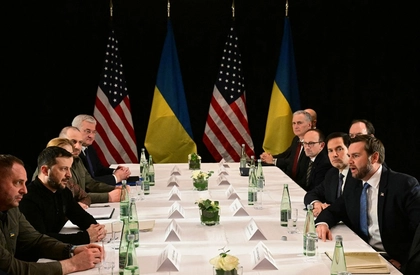The new 13th package of sanctions against Russia, which the European Union plans to introduce around the time of the second anniversary of the launch of Putin’s war against Ukraine, is likely to the weakest so far.
Radio Liberty journalist Rikard Jozwiak researched and analyzed the future package of sanctions, before writing about this on his X (formerly Twitter) page.
JOIN US ON TELEGRAM
Follow our coverage of the war on the @Kyivpost_official.
According to Jozwiak, the next package of EU sanctions against Russia will consist only of a ban on issuing visas and the freezing of assets relating to 250 individuals and legal entities.
“To coincide with the second anniversary of the full-scale invasion of Ukraine it is set to be the weakest and most unambitious package to date,” Jozwiak concluded.
In January, according to Bloomberg, the European Union began discussing the next package of sanctions against Russia, which it is going to approve by February 24, the second anniversary of Moscow’s invasion of Ukraine.
The Polish newspaper RMF24 reported that Poland and the Baltic countries had proposed banning the import of liquefied natural gas (LNG) and aluminum from Russia as well as a raft of other measures designed to impact on Russian economic and technological development.
The proposal would include a ban on knowledge transfer, scientific cooperation and research funding to Russia, further measures to combat circumvention of sanctions by the Kremlin, strengthening sanctions in the aviation sector, as well as expanding the list of prohibited products used in the production of drones.

Munich and After: An Unprincipled Mess
Poland, together with the Baltic countries, wanted the new package of sanctions to include Belarus in order to prevent Russia from circumventing EU restrictions with the help of Minsk.
It seems now that is unlikely to happen, at least in this round of sanctions.
You can also highlight the text and press Ctrl + Enter











